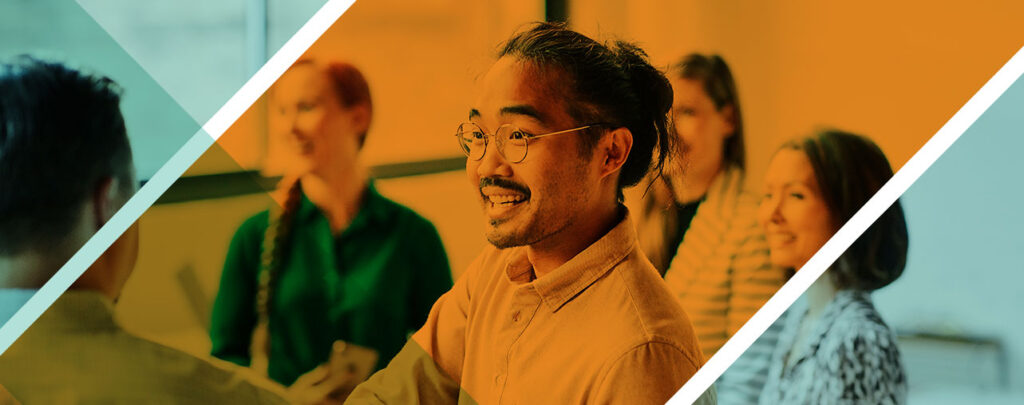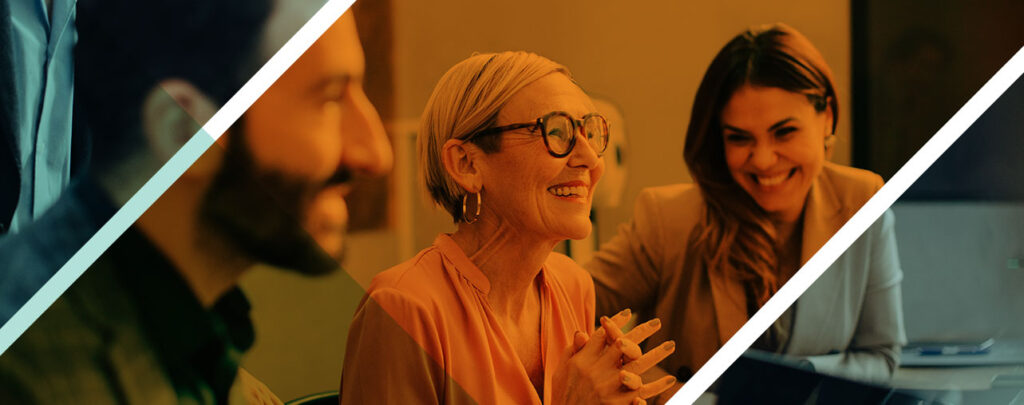A roundtable discussion about DEI – part one


- Author: Ingenuity Design
The last few months have been hard. Many of us have felt disconnected when we need to be more connected than ever as we navigate Covid-19 and the Black Lives Matter movement. At Ingenuity, we realize that if we’re not part of the solution to racial inequality, we’re part of the problem. Systemic racism is exactly that: systemic, and organizational cultures are systems that have to actively promote diversity, equity, and inclusion and combat racial inequality to avoid contributing to it.
While talking about race in the workplace can be uncomfortable, especially when we can’t meet face-to-face, it is a privilege to be able to turn away from that discomfort. In this two-part zoom roundtable discussion with Meghan Stewart, Managing Partner, Greg Stewart, Founder and Executive Creative Director, Katie McFate, Director of Project Management, and Brandon Smith, Account Executive, we sat down to talk about diversity, equity, and inclusion, what it means for our clients and our work, and what it means for Ingenuity itself.

Diversity, Equity, and Inclusion consultant Lily Zheng says that the best DE&I strategies detail why a company’s DE&I goals matter to the company’s mission, how they embody and strengthen the company’s values, and with what methods they can be achieved. What are Ingenuity’s core values? What impact has the Black Lives Matter movement had on your diversity, equity, and inclusion goals, values, and culture?
Meghan: Our values are centered around who we are as individuals and what we can bring both to our work and our team. First and foremost, that means being a good person. We’re very purposeful in our work and how we work together. We value accountability and owning what you do, both from a work perspective and beyond, and bring cleverness and curiosity to our work.
Collaboration is also incredibly important, as is having a lot of fun while continuing to grow and educate yourself. We know we can do better, and we plan to revisit our values and clarify our commitment to being an anti-racist organization and a more equitable place to work for and with. One of our values—accountability—is really coming to life right now, as we’re all accountable in terms of how we react to the current state of the world and decide to move forward.
Education is a critical piece in our overall Diversity, Equity, and Inclusion program, as there’s a lot of learning and unlearning that must take place. Some uncomfortable conversations have happened and will continue to happen, so being respectful of one another and good to each other will continue to be critical. There are also internal practices we plan to improve as well as actions we’re taking to be better partners in our community that leverage our strengths and talents.
Brandon: I agree that one of our core values is improving and bettering ourselves. First with Covid-19 and then when George Floyd was murdered, conversations and learning started happening immediately and it became an official thing that we were doing as a company, committing to bettering ourselves so we can be a better agency and a better team. Any business is only as good as the people who work for it. As we continue to better ourselves, it makes everything that we do better. Even this conversation here is a step in the right direction, to be open and transparent about a topic as deep and vast as this.
Katie: The unique thing about being a small company is that this is also personal for Greg and Meghan. This is their business and also their family, so they bring a lot of their family values to the company and they invest a lot in their employees and in their company. So another primary value is that they care about the health and wellness and safety of their employees. We’ve seen that with Covid-19 and again as the Black Lives Matter movement has come to the forefront.
At Ingenuity, your motto is “We strengthen companies from the inside out.” What insight has the current climate provided about Ingenuity’s own strengths in terms of diversity, equity, and inclusion?
Greg: “Inside out” came from the idea of connectivity. We connect internal folks to the outside and we connect businesses to other businesses. This idea of uniting and connecting is one that we’ve always believed in and it’s what we do best. Now more than ever, it feels right to celebrate that, to focus on this through an employee experience lens and recognize that we’re all connected. We do it internally at Ingenuity, so being able to do that for our clients is something that we do well and look forward to doing more and more.
Katie: We realized that we can’t insulate ourselves from exterior events, not just with our clients, but in the world. Our clients have their own goals and obstacles, but we have to consider that the world around us is changing rapidly. Part of our accountability is to be more aware of and grow from the changes and use that growth and awareness to help our clients with those changes and have constructive conversations about how we can best help them with our creativity, thoughtfulness, and communication expertise so their employees also feel included.
Brandon: One of the diversity, equity, and inclusion topics we’ve tackled most recently is accessibility and because we have such a great human connection with our clients, when it comes to topics like accessibility, we’re really good at having those conversations. If our clients haven’t been thinking about accessibility, we can get the ball rolling and if they have, we can keep it rolling while keeping their goals and needs in mind.
Katie: I think accessibility was a really good example where we’re both personally and professionally invested in really making sure we were educated on it. We learned on our own, we talked to other professionals about it, and then we started implementing changes. While we’re a small company and we all wear a lot of hats, we know that when we find a place where we need to improve, we’re all willing to do the work to do that.
Audre Lorde said “it is not our differences that divide us. It is our inability to recognize, accept, and celebrate those differences.” You’ve all mentioned openness and communication as in line with your values at Ingenuity, but discussing race in the workplace can be difficult, and it can be an even greater challenge at a smaller organization. How do the teams at Ingenuity have difficult conversations while recognizing, accepting, and celebrating differences?
Meghan: Because we are small, the conversations have started on more of an individual basis. Part of my role at Ingenuity is to create a safe environment for everybody, but race is a sensitive topic, so there is bound to be some discomfort. Safety and discomfort don’t always go hand in hand, but for us to really grow from this, it’s required. As for my own personal education and understanding and unlearning, I’ve become more aware that I need to do the work myself. I really appreciate the fact that Brandon has been really open to conversations and has been a really great partner in this, but I’m still minding the fact that it’s not his job or anybody else’s to educate me. We’re still in the beginning stages in a lot of ways, but I’m looking forward to more conversations and more progress happening internally.
Brandon: Over the last few years, our conversations have become a bit more communal and open. Even in smaller groups, people are willing to have conversations that allow them to be vulnerable and open to learning and ask questions that may be outside of their comfort zone. I’ve also never worked with more observant people, so even if we’re not directly talking to someone, we’re all still able to pick up information from others. Regardless of the group size, the tough conversations are definitely being had and it’s due to the fact that we’ve created a really safe space within the team itself.
Katie: I think one of the things that’s been interesting is this shift in our work environments from professionalism to safe professional vulnerability. Now we’re working from home and everyone knows a little bit more about each other personally and we’re able to have more in-depth conversations that are more uncomfortable but safer because we’ve already shared a lot with one another. And while it’s wonderful that we all care very much about each other, we also have to push ourselves to really understand more and be there for each other more now than we had been previously.
What happened to George Floyd is not new news, right? This has been happening for a long time and now we hopefully have a movement that will really transform some of the systemic racism happening in our country right now. I think the Black Lives Matter movement has really created a level of awareness for some of us of how unaware we were. Maya Angelou said, “Do the best you can until you know better. Then when you know better, do better.” Now we know better and we have to do better for each other and for others.
Meghan: Exactly. And the unfortunate reality of the lives we’ve been living since March also primed us to want to connect more. We miss each other and it kind of prepared us for these conversations because we’re just looking to connect with each other more. This is something that you can’t ignore. It’s all incredibly sad, but I’m hoping that we’re at least trying to take the right steps to do something better in terms of diversity, equity, and inclusion.
Katie: And I think we’re a better company now than we were last year in terms of the ability to communicate with each other, understand each other, and grow uncomfortably. We can’t all get along all the time, but we can all have very transparent conversations about where we are and learn from one another and I feel I’ve learned a lot. Brandon and I have been working together for four years and we’re still learning things about each other now.
Greg: I agree with all of those sentiments like our increased vulnerability and empathy and shared understanding that we were forced into this situation. The last few months have been scary and as everyone has said, it has created a lot more empathy.
Brandon: And the team is really open to admitting that we don’t know everything as individuals. This is one of those moments where I feel like there isn’t one right thing to do because history is kind of happening in real time. And so the best thing you can do is be open-minded to learning and having conversations and be open to receiving different perspectives and different ways of thinking and understanding various experiences. Like Katie mentioned, she and I worked very closely for a handful of years and I feel like we’re just now starting to understand each other as individuals. In moments like this, you do have an opportunity for extreme enlightenment and everyone should kind of jump at that chance and become better for it.


